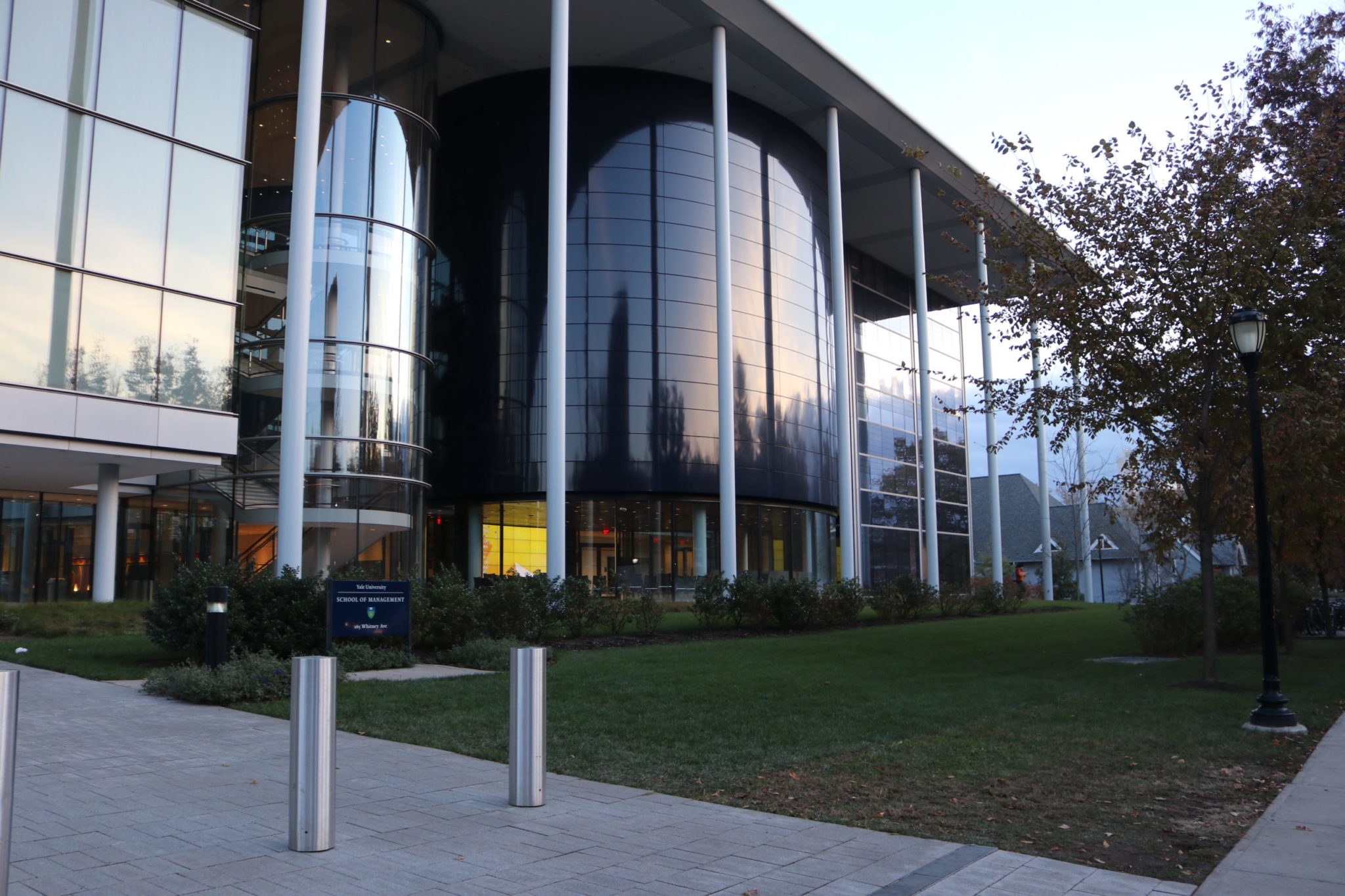
Yale Daily News
Though in its 15th year, this year’s Yale Philanthropy Conference is unlikely to resemble any other.
The conference, whose theme this year is “Reimagining Philanthropy,” will be hosted by students at the Yale School of Management on Thursday and Friday. The event’s 16 panels and workshops and two keynote speakers will take place entirely virtually due to COVID-19 public health restrictions. Many of the event’s conversations will focus on the significance of philanthropy during the pandemic as well as the systemic inequities that the pandemic has exposed.
YPC Committee co-chair Elena Bell SOM ’21, one of the conference’s student organizers, described her goal for the conference as “creating a more just, equitable and resilient sector that will make a more just, equitable and resilient society.”
“I hope that people will walk away from the conference thinking deeply about … how they can make those power dynamics more equitable,” Bell added.
The YPC was first held in 2004, organized by SOM students “to bring together people in the non-profit foundation world with students interested in social impact at the Yale SOM,” according to YPC Committee co-chair Eloise Owens SOM ’21.
The 2021 YPC will include keynote speakers Judy Belk, president and CEO of the California Wellness Foundation, and Pia Infante, trustee and co-executive director of the Whitman Institute — a philanthropic fund.
Infante’s keynote is titled “There’s No Going Back.” According to Infante, the title signifies that people should not desire a return to the pre-pandemic world because they must first learn the lessons the pandemic taught them — particularly how the pandemic exposed the dysfunction in United States democracy and society.
“It’s important to show those things,” Infante said. “They existed before the pandemic. They will continue to exist if we don’t address them deeply … I think if philanthropy wants to revert back to the way it was operating before, it’s sort of like putting blinders on to the complexity of this time.”
Una Osili, associate dean and professor at the Indiana University Lilly Family School of Philanthropy — the first school in the world dedicated to philanthropy — will be speaking on a YPC panel titled, “The Role and Responsibility of Philanthropy: Reflections on 2020” on Friday.
Osili explained how the events of the last year have pushed philanthropy to the forefront more than ever before.
“What we’ve seen during this period is philanthropy take a very highly visible role in addressing the crisis,” Osili told the News. “In the beginning, it was focused on the health impacts … filling in the gaps where governments were limited in their ability. Over time, philanthropy has also played a role in addressing the economic fallouts of the crisis. In many communities, we had private corporate donors step up to provide laptops, tablets and wi-fi so that students who were moved from brick-and-mortar to virtual learning could actually get access to their education. That happened in the U.S. and across the world.”
For this year’s conference, one of the YPC Committee’s focuses was to serve local nonprofits. Owens told the News of the YPC Committee’s targeted outreach with local nonprofits and a workshop, “Ten Ways to Reach $100,000,” specifically targeted to local nonprofits.
But for some organizers, the conference’s virtual environment has both its advantages and disadvantages.
“I will miss the serendipitous, sort of bumping into each other at the conference, which in many ways, cannot be replaced,” said YPC Committee co-chair Anshula Madhavan SOM ’21. “But we’re really grateful, on the other hand, to be able to expand our borders. Our registrations this time have been like never before. For me, it’s overwhelming, but in good ways.”
In addition to increasing the number of attendees and the scope of the conference’s influence, the virtual platform has allowed opportunity for greater geographic diversity in speakers.
“The virtual environment has also given us incredible access to speakers across the United States, as well as speakers globally,” Owens said. “And of course, it’s critical that there’s diversity in terms of identity as well, so we’ve tried to be very thoughtful around that.”
Another unique advantage posed by the COVID-19 pandemic and virtual platform is making tickets optional, greatly increasing the event’s accessibility. In previous years, YPC charged around $85 to $100 per ticket when the conference was held in person.
And attendees interested in a career in philanthropy will have the opportunity to learn from the breadth of the professional experience of speakers.
“We have developed an expertise at JA [Junior Achievement] of working with philanthropist, corporate, and private foundations,” said Asheesh Advani, CEO of Junior Achievement Worldwide, a global youth nonprofit that operates in 115 countries. “I wanted to share some of the lessons we’ve learned of how to build trust amongst donors in those three categories because I think the ability to build trust and get your funding unrestricted is different in each of those categories.”
Advani will be speaking on a YPC panel titled “Building 21st Century Nonprofit Capital Markets: Scaling Enterprise Capital” on Friday.
The conference will feature insights from and conversations with over 50 speakers with a wide range of experience in philanthropy and non-profit work
Grace Zhang | grace.y.zhang@yale.edu







